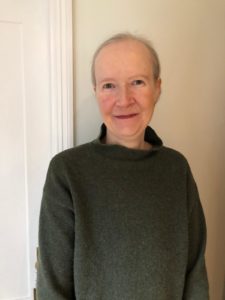In November 2023 METUPUK trustee Madeleine Meynell was a panel member at the event Optimising NICE outcomes: Policy roundtable on the evolution of NICE methodology and how patient organisations can best engage with appraisals. She was joined by Sheela Upadhyaya who is a Life Sciences Consultant specialising in rare diseases, who has previously worked at NICE. Adding to the lively discussion were representatives from a number of patient groups including large charities and small grass roots organisations.
As a person who has worked for NICE, Sheela’s contribution was valuable in explaining the opportunities and challenges presented by the health technology process. As a member of a patient group attempting to navigate NICE processes, Madeleine was able to articulate the difficulties faced by charities and individuals attempting to understand NICE methodologies. The focus of NICE is to ensure that innovative medical technologies get accepted into the NHS at a fair price to the taxpayer. The NICE processes are very technical, and there is a sharp learning curve to understand them. The health economics presented by Companies and Evidence Assessment Groups is so detailed and complex that it is inaccessible to most people. The discussion with other patient groups was valuable because it showed that most organisations were struggling with similar topics. It was suggested that in recent years the mathematical modelling has become increasingly technical and difficult to be scrutinised.
As a patient with metastatic breast cancer, it can be distressing reading NICE documentation which can seem detached from the life of a patient. It is also difficult to see decisions about willingness to pay being based on the models which project survival 10 years or more into the future. Given that the median survival of metastatic breast cancer is 2-5 years depending on subtype, projecting survival 10 years into the future is not the outcome that most patients will experience.
The roundtable discussion went too quickly and there were many more topics which we wanted to cover. Central to these was a freeze in money available for use in novel drugs with the base willingness to pay per QALY (Quality Adjusted Life Year) unchanged. In 2004, NICE was given a maximum willingness to pay of £20,000-£30,000 per QALY gained. In 2023, this basic figure remains the same and has not been adjusted for inflation, although as everyone knows nothing in the shops remains at 2004 prices. In 2009, end of life drugs were given a maximum willingness to pay of £50,000 per QALY gained. Most drugs for metastatic breast cancer qualified as end of life treatments. Under the new NICE procedures, there are two severity modifers, medium severity and high severity. Most metastatic breast cancer drugs are designated as medium severity, giving a maximum willingness to pay of £36,000 per QALY gained. Unfortunately, all recent metastatic breast cancer drug appraisals have stalled, with delays in reporting decisions and patients left in a state of uncertainty.
NICE is an independent body and is separate from Government. Therefore, Government will generally not comment on the outcome of individual drug appraisals. However, Government sets the budget within which NICE operates. The reason that the base willingness to pay remains at £20,000-£30,000 per QALY gained is because successive administrations have not provided more funding. This is not a NICE decision, and NICE should not be blamed for this.
Despite the imperfections of NICE appraisal system, at METUPUK we do support robust health technology appraisals. We do not want our health service to pay pharma companies what they demand without assessing if it is a fair price. Having said this, we also understand that is it very rare for innovative cancer drugs to be created without pharmaceutical companies, and that for every successful drug there are many that fall by the wayside. Drug approvals are a complicated balance between the need of drug companies to turn a profit in order to invest in more drugs down the pipeline and the needs of a health service which is under financial pressure.
At the very centre of this is the patient, and at METUPUK we will always remember who we are advocating for.

Madeleine Meynell Trustee METUPUK
